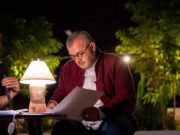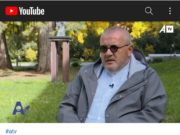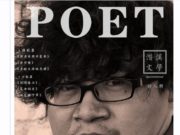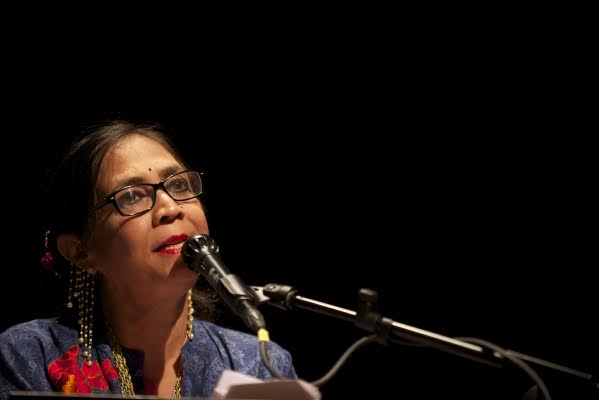Photo credits to Martin Richartz
Rati Saxena – Poet/ Translator/ Editor (kritya) / Director Poetry festivals -kritya and Vedic scholar. She has 5 collections of poetry in Hindi and two in English ( Translated by poet) and one each in to Malayalam, Italian, Estonian, and Vietnamese and English translated by other poets. Her poems have been translated in other international languages like Chinese, Albanian , Spanish, Uzbek, Indonesian , Spanish, German etc. .She has a travelogue in Hindi “Cheenti ke par”, a Memoir in English“ Every thing is past tense “, and a criticism on the work of famous Malayalam Poet Balamaniyamma’s work. Her study on the Atharvaveda has been published as “The Seeds of the Mind- a fresh approach to the study of Atharvaveda” under the fellowship of the Indira Gandhi National Center for Arts. She has translated about 12 Malayalam works, both prose and poetry, into Hindi and two poetry books of Norwegian poets , one each from Welsh, Vietnamese. She has a number of articles published regarding Indology in a number of journals. She has been invited for poetry reading in more than 22 prestigious poetry festivals around the world, among some are very popular e.g., The Struga Poetry Evening (Macedonia)( 2010) the prestigious poetry festival in Medellin -Colombia (2011 and 2014),, 10th Edition of “ Ritratti di Poesia” Feb 2016 and China’s Moon Festival and Shanghai book fair. She is the only Indian participant in some imp poetry festivals like Iran’s Fajr Poetry Festival, Iran (2014) , International Istanbul Poetry Festival (IIPF) Turkey (2014), 4th international Eskisehir Poetry Festival Turkey (2014). And a Special poetry reading in A Caruna , Spain ( 2015), Poetry reading at Foundation Vicente Risco, at Allariz ( Spain). She has also been invited to some American Universities like Mary Mount University in Los Angeles and University of Seattle ( USA) to talk on Vedic poetry and recite her own poetry. Her poem was poem been chosen in popular book of china “110 modern poems of the world”) 2015, ” Her poem was also part of space mission by Jaxa, Japan, along with 24 other poems. In 2002 . She was also artist in Former Artist-in-residence at Ebenboeckhaus Munichand Artist-in-residence at Künstlerhaus Villa Waldberta.
Her Awards- Fellowship by Indira Gandhi National Centre for Arts in 2004-5,Sahitya Akademi Award for Translation 2000, Sate Bank of Travancore Award for poetry 2001, Naji Naaman’s Literary Prizes ( International) for 2016.
She is the member of –
She is one of founder member, and member of coordinate committee Of the World Poetry Movement.
Member of the journal’s editorial board-Multilingual Journal of Literature and Opto-Art “WürZarT,”
Member of scientific board Canzoniere, an international book-cd series devoted to poetry with music
Rati Saxena – Born in Udaipur, Rajasthan, India. She is a poet, writer, translator, Editor and vedic scholar, writes in Hindi and English. Presently lives in Trivandrum , Kerala, India. She is also festival Director of kritya International poetry festival for 10 years.
- Biography – Rati Saxena has passed B.A. (Honours) Sanskrit, Maharani College, Rajasthan University,1972; M.A. SANSKRIT (Veda specialization) , Rajasthan University, 1974. She has Ph.D in ‘Atharvavediya Padarth Yojana’, Vedic Sanskrit, Rajasthan University,1978. And then again B.Ed- Sanskrit, Kerala University, 1987 and also M.A Hindi, Rajasthan University, 1994.
• Work experience – She was Lecturer in the Teachers Training College, Kerala hindi prachar sabha, 1987–2003. She worked as Visiting professor in Shankaracharya Sanskrit University, Kaledy in dept of Vedic study from 2005 to 2010 . She is a full time writer/ poet since 2011.
• Writings – Rati Saxena is writing in three directions. she has done research and explores the cultural, philosophical and historical aspects of ancient India through study of Vedas. She has published a number of papers on related subjects. She holds an eminent place in world poetry and writes in Hindi. Apart from these subjects, she writes travelogues and criticism too.
• Other activities – She is the editor of bilingual poetry web journal ‘www.kritya.in’ which is online since 2005. She is also the director of international Poetry festival- kritya since 2005.
Bibliography
Criticism/Research
- A literary criticism in the field of indology “THE SEEDS OF THE MIND”- A fresh approach to study of the Atharvaveda . Publication Scheme, Jaipur- (Rajasthan) 2005
- ‘BALAMONI AMMA KI KAVYAKALA aur JEEVAN DARSHAN’ (Balamoni Amma’s Poetic Art and Vision, Hindi), Kendra Sahitya Akademi, New Delhi, 2002 (Hindi)
Poetry books
- ‘Maya Maha Thagini’ (Hindi), Gyan Prakashan Mandir, Bikaner, Rajasthan, India,1999.
- ‘Ajanmi Kavita Ki Kokha Se Janmi Kavitaen’ (Hindi), Rajasthan Sahitya Akademi, 2001.
- ‘Sapane Dekhata Samudra’ (Hindi), Published by Magadh Prakashan, Delhi 2003
- ‘Ek Khirhaki aath salakhen’ (Hindi), Publication by Kritya prakashan TVM, 2007
- ‘The Serpent Coiling Woman Body’ (English), Virgo Publication, New Delhi.
- ‘One Window And Eight Bars’ (English), Publication by Kritya prakashan, TVM, 2007
- ‘The Aroma of spices’ (Bilingual), Publication by Kritya prakashan,TVM, 2011
- ‘Kavita’ (Hindi), Publication by Kritya prakashan, Trivandrum, 2014
- ‘Poetry’ (English), Publication by kritya prakashan . Trivandrum, 2014.
- Scripted in the Streams- Translated by Seth Michelson, Published by Poetry walla, Mumbai-2017
- Khandhar me selfy- Under publication
Work Translated in to international languages
- ‘Ottos barre A Una Finestra’ (Italian), by Federico Federici, edizioni di cantarena, 2008, Genova.
- ‘Rogha Danta’, (Irish), by Gabriel Rosenstock kavita, kritya prakashan, Trivandrum, 2013.
- hoianpihus Kardemonikupraid ( Estonian ) Translated by Margus Lattic, Mathura2015
- Mo Duoc Song Vung Dat Khac ( Vietnameese ) translated by Pham Van Binh Dich 2015
Travelogue
- ‘Cheenti ke par’ (Hindi), Yash Publication Delhi. 2012
Memoire
- ‘Everything is past tense – A memory lane to Ayyappa Paniker’ (English), Kritya Prakashan , Trivandrum, 2012
Translations by Dr Rati Saxena
From Malayalam to Hindi
- ‘Naivedya’, Hindi Translation of a collection of Malayalam poems of the famous Malayalam poet, Balamoni Amma, Vani Prakashan, New Delhi, 1996.
- ‘Ayyappa Panniker Ki Kavitaen’, Hindi Translation of Malayalam poems of the famous Malayalam poet, Ayyappa Paniker, Sahitya Akademi, New Delhi, 1997.
- ‘Karoor Neelkanta Pillai: Chuninda Kahaniya‘, Hindi Translation of Karoor Neelkanta Pillai’s short stories from Malayalam, Sahitya Academi, New Delhi, 1998.
- ‘Rassi’, Hindi Translation of Takazhi Sivasankara Pillai’s novel KAYAR from Malayalam, National Book Trust, New Delhi, 1999.
- ‘Apoorna Aur Anya Kavitaen’, Hindi Translation of K.Satchidanandan’s collection of poems from Malayalam. Rajkamal Prakashan, New Delhi, 2001.
- ‘Meri Deevar Par’, Hindi Translation of K Ayyappa Paniker’s collection of poems from Malayalam, Gyanpeeth , New Delhi, ( Under Publication)
- ‘Tanava’, Hindi Translation of K Ayyappa Paniker’s selected poems from Malayalam, Pipariya, M.P., India, April-June-2002
- ‘Hakalahat’, Hindi Translation of K. Satchidanandan ‘s collection of poems from Malayalam, Aloka Parva Prakashan, (Co-Translator) New Delhi, 2003
- ‘Nirmadalam Pootha Kalam’, Kamala Das’ Novel, Translation from Malayalam into Hindi. ( Under Publication)
- ‘Kurukshetra’, Hindi Translation of K Ayyappa Paniker’s long Poem from Malayalam,Trivandrum, 2006
- ‘Das Baje’, Hindi Translation of K Ayyappa Paniker’s collections of poems, Trivandrum, 2006
From International languages into Hindi
- ‘Genda ki udhan’, Odveig Klyve’s poetry, kritya publication, 2011
- ‘Alabama’, Helge Torvund’s poetry , kritya publication, 2013
- Selected poems of Menna Elfyn, A welsh Poet 2011
- Alap – Pratilap – Poems of My Van Phan, Vietnam -2016
Research Papers
Apart from poems and stories, Rati has written several articles particularly regarding Atharvaveda. She attempts to make a fresh reading of the Atharva veda from the point of view of (a) its contemporary relevance, (b) its literary and poetical quality, (c) its basis in the Indian folk tradition, (d) its socio-psychological orientation and (e) its closeness and similarity to modern scientific perceptions of the universe. Keeping this view in mind she has written several papers, which have been published in Indian and internet journals. Few of her works can be seen in,
In Hindi
- Ph.D. Thesis – ‘AtharvavedIyaPadArthyojana’, Supervisor Dr. Sudheer Kumar Gupt, 1978, Rajasthan University.
2. Atharvaveda and folk culture, MadhyBharati, Sagar, India,1991, Madhya Pradesh
3. Vedic –Lokachar, chwmasa, Bhopal, 2000-2001, Madhya Pradesh, India
4. Marriage ceremonies in Vedas, chowmasa, 2000, Madhya Pradesh, India
5. SmrIti and Adim rag in Astha –Visvas , Marhai, Nov 1999, Chattisgarh, India
6. Khandit rag kiakhandta ka Alap, Marai, Nov 2000, Chattisgarh, India
7. Mratyu our Ved-
8. PRikrIti versus sanskRiti, Rachana, April, 2000, Madhya Pradesh, India
9. LokachetanakIprathamabhivyakti, Rangayana, -1997, Rajasthan, India
10. Women in Vedas and their freedom, Majara,- 2001, Rajathan
11. Kabir and atharvaveda , Bhasa,-1994
12. Holistic medicine and Atharvaveda, MadhyBharati, 2002, Madhya Pradesh, India
13. Vedic hinsa hinsa na bhavati- Lakamat-2010
14. Ved ka kaal Nirnaya -2014
Any many more
Some Important work in English
- AthavaVeda and folk culture, Journal of Sukritindra Oriental Research Institute, Kochi, India, October 2000.
- The Vedic Quest – Concerning the Universe, Space and Time- Indianest. Com June 2002 and Journal of Sukrindra Oriental Research Institute 2002
- Taking vedas to the Common Man, The Indian Express, June 7 , 2003
- Hindi literature related to the freedom struggle.- Bodheswaran Foundation December 11, 2004
- Ayurveda in Atharvaveda, Dept. Of Vedant, Kalady.
- Translation in Practice. Malayalam Department, National seminar, SSUE, Kaledy
- Aesthetics of Translation, Sree Sankaracharya University, Kalady. Centre for comparative Literature, National seminar on Comparative Literature a: current trends, March 2007
- Religion Marketing – National Seminar in Dpt of Pholosophy inSSU Kaledy
Presentations/Participations
She has been invited for poetry reading in prestigious poetry festivals
- “PoesiaPresente” in Monza (Italy), 2009
2. Mediterranean Festival (Rome), 2009
3. International House of Stravanger (Norway), 2010
4. Struga Poetry Evening (Macedonia) , 2010
5. ‘3rd hofleinerdonauweitenpoesiefestival 2010, Vienna ,
6. Poetry festival in Medeliin (2011)
7. Iran’s Fajr Poetry Festival ,(2014)
8. International Istanbul Poetry Festival (IIPF) Turkey, 2014
9. Poetry festival in Medeliin( 2014)
10. 4th international Eskisehir Poetry Festival. 2014Turkey
11. China’s Moon Festival 2014, Chaina
12. Asia pacific poetry festival 2015 Hanoi , Vietnam.
13. Special poetry reading in A Caruna , Spain ( 2015)
14. Poetry reading at Foundation Vicente Risco, at Allariz ( Spain ) 2015
15. International female poetry festival, created and host by Fundación Casa de la, Cultura,Cereté-Córdoba (Colombia) 2015.
16. Poetry Reading in Rome on the 5th of Febraury at Piazza di Pietra 2015.
17. 2016 Twin rivers International Poetry Week at Suiyang Country,Zunyi City, Guizhou Province.
18. Shangai International Poetry festival, China, August 2016.
She has been invited to some American Universities like Mary Mount University in Los Angeles and University of Seattle ( USA) also to talk about Vedic poetry and recite her own poetry in 2014
She is the founder member of the World Poetry Movement. She is the only Indian whose poem has been chosen in popular book of china, ‘110 modern poems of the world’.
Some Important Participation In India-
- National Seminar for literature- Udaipur (Rajasthan) 21 June to 23 June 1997
- POETRY READING in ASMITA, SahityaAkedemi Auditorium New Delhi-7 April, 1999
- International Seminar on Sanskrit theatre, Dr, Hari Sing Gowr University, SAGAR, 5.1.2000
- National Seminar for women, Govt. Arts and Science College, Calicut, 2,3, March, 2000
- Invited as a Special Guest by BakshiSrijanpeeth , Chattisgarh and presented poetry in different cities of Chattisgarh State, April 4 to April 10
- Poet – Translator Meet, SahityaAkedemi, Bombay, 20 October.2001
- Meet the Author, Book Fair, Rajasthan Patrika, Jaipur, Jan.2002
- Poetry Reading in Asan Memorial Celebrations, Thiruvananthapuram , April 2003
- All India Radio, Rajkot January 2003.
- National Seminar in Hindi, StreeVimarshavamhindinatakvikasyatra, Dept. of Hindi, Payyanur college, PAYYANUR-Feburary-2004
- National Seminar, Krishna Cult in North India, SahityaAcedemy. Payyanur, Feb-2004
- LOK me PRATIRODH. ShreRamanandSaraswatiPustkalaya, jokharaAzamGarh, 13-15 March, 2004.
- International seminar on Mahabharat, SahityaAcedemy, New Delhi-2004
- Seminar for translation, SahityaAcedemy, New Delhi-2004
- National seminar on Translation and Resistance organized by The culture institute of Indian language, Mysore and Samyukta -2004
- National seminar on Vedas and inter disciplinary studies organized by KadavallurAnyonyaparishath november.15 to 25 –2004
- National seminar by Bodheswaran Foundation on Tradition and Modernity in Hindi literature related to the freedom struggle. on December –11 –2004.
- National seminar on Vedas and inter disciplinary studies organized by KadavallurAnyonyaparishath november.15 to 25 –2004
- National seminar for folk literature- Sahitya Academy and Ramnika foundation, Ranchi Bihar- 2005-March. ( paper on folk elimants in Vedas)
- 3- days lectures in SreeSankaracharya University , Kaledy Kerala Feb. 2006-
- Ayurveda in Atharvaveda- paper presented at SreeSankaracharya University Kalady, march-2006
- Poetry presentation in Kavyabharati, Kerala SahityaAkedemy and KerlraSahitya Academy –April 2006
- Lecture on functional Hindi—MARATHAANASIUS COLLEGE , KOTHAMANGALAM , KERALA – on 22.01.2007
- National seminar on Vedas and inter disciplinary studies organized by KadavallurAnyonyaparishath November.15 to 25-2006
- Kavita Utsav-2, J & K Acedemy of Art, Culture and language. – Gust of honor
- Translation in Practice. Malayalam Department, National seminar, SSUE, Kaledy
- On 2.Feb.2007
- Rereading of Vedas- SreeNeelakanta Govt. Sanskrit College of Pattambi- Kerala, 8 Feb. 2007.
- Central Institute Of Hindi, Mysore centre, Ministry of Human resource Devolopment Govt. of India March 8-9, 2007-03-23
- Aesthetics of Translation, Sreesankaracharya University, Kalady. Centre for comparative Literature, National seminar on Comparative Literature a: current trends. 2 March 2007
- Religion Marketing – National Seminar in dept of Philosophy in Sreesankaracharya University, Kalady.
- SahityaAkedemi, Ludhiana Punjab.
- Kendriya Hindi Sansthan, Mysore, , BhashaprodhyogikikevibhinnAyam Feb 25-26 2010
- Poetry reading at Hydrabad literary festival –Jan,2014,
- Goa Literary Festival – Nov – 2014
- SARJANAA ODISHA, Litrary festival, Odisha Feb- 2015
Awards-
- Fellowship by Indira Gandhi National Centre for Arts in 2004-5
- Sahitya Akademi Award for Translation 2000
- Sate Bank of Travancore Award for poetry 2001
- Naji Naaman’s Literary Prizes ( International) for 2016
She is the only Indian whose poem has been chosen in popular book of China “110 modern poems of the world” Her poem was also part of space mission by Jaxa, Japan, along with 24 other poems Right now she is residence in Artist in Villa Wardbreta, Munich-August-Septmber-2016.
Apart from these books her poetry has published in different journal around the world like
versal
http://www.versaljournal.org/versal2/le Voci della Lunna
Private
http://www.levocidellaluna.it/
arabesques
http://www.arabesques-editions.com/journal/rati_saxena/1033305.html
poets International
http://www.theperegrinemuse.com/PoetsInternational/rati-saxena/
prairieschooner
http://prairieschooner.unl.edu/fusion/feast/feast-time
JaXa
http://iss.jaxa.jp/utiliz/renshi/message_pop10_e.html
Samyukta
http://samyukta.info/site/book/export/html/352
Poeticdiversity-
http://www.poeticdiversity.org/main/bLApoems.php?nameCode=ratisaxena&date=2004-02-01
She in media-
Indian express
http://www.internationalnewsandviews.com/five-literary-flag-bearers-indian-poetry-has-been-benefiting-from-2/#sthash.sIKp58Xv.dpbs
Struga Poetry evening
http://www.strugapoetryevenings.com/poets/dr-rati-saxena/?lang=en
Festival Medellin
http://www.festivaldepoesiademedellin.org/en/Festival/XXI_Festival/Comunicados/12.html
Poetry East and west
http://poetryeastwest.com/2011/06/15/%E5%8D%B0%E5%BA%A6%E5%A5%B3%E8%AF%97%E4%BA%BA%E6%8B%89%E8%92%82%C2%B7%E8%90%A8%E5%85%8B%E8%BE%9B%E5%A8%9C-rati-saxena/
http://en.mehrnews.com/TextVersionDetail/102873
Kathmandu post-
http://www.ekantipur.com/the-kathmandu-post/2013/10/25/related_articles/voices–in-poetry-we-trust/255010.html
Literary filmfestival
http://www.literaryfilmfestival.com/
http://www.100thousandpoetsforchange.com/world-poetry-movement/
Rati Saxena;s poems
With me
this time again it happened
they cut me with knife
like water melon
cut in two, than again two
I am bleeding covered with my own juice
I thought
no problem
wind is there,
with sun with me
moon is there,
with banyan with me
The whole sky is with me
with a feather of birds
my juice dried up
from body
then heart
on the earth
I started decaying
earth worm was also there
where I fall
“ every one has to make his place
by cutting the hardness without teeth”
I did not thank the earthworm
as I knew
he IS the one with me.
(Translated by poet)
I, IN UDAIPUR
*
By that tree, that temple –
Thick with gods, drums and bells.
Longing for an offering, a cow waits –
with fly-flickering tail.
And beside this, that dancing Lake.
The Lake that was –before my birth
The Lake that will remain after me
The Lake that is frozen in my heart –
The Lake that melting drop by drop by drop
And immersed emerged it self in me.
And I was a tree by this Lake, and when the cattle
rubbed and rubbed their backs on my bark,
erased, I fell into the Lake.
Then the swimming in my dreams.
And I was the flotsam on the Lake
some kid picked up and tossed;
back I veered (again), out I was flung (again),
and thus flung, again, again, to return
each time nearer.
I am in that lake, and I am the Lake.
In this life.
I, in Udaipur.
**
And then I may have been a fruit on the tree by the Lake.
Plop! as I fell, a parrot dived low to catch me.
Then how, oh with what relish, he chewed me.
I remember … that rough beak, that consoling tongue.
And I may have been a bell that fell
from the anklet of the Lake-Palace dancer.
Some anklet tinkles in me today like
The taste of a teardrop tossing on my tongue.
Someone in me, ever thirsty to step out of the veil.
***
At the shore of this Lake
in some middle-class family,
a fourth daughter, born.
No applause –
No drumbeat –
Only the shadow of a silence.
A storm brewed on the Lake
And the tide went out to sea.
A fourth daughter has no heart.
There’s no one she calls her own.
A fourth daughter
Is like the Udaipur Lake, eyes always dancing
Is the anklet of the Lake Palace dancer, tinkle-laughing without a reason.
Today by the Lake
this fourth daughter muses
over her past lives.
****
A woman, have I
nothing to offer
my ancestors?
no rights to sacred drops have?
Not a daughter
but a sour berry?
Not on a stem
but on a prickly bush?
Not a daughter, but a wild berry
sweet sour memories
not a daughter
Not the sweet Lake
But
Brackish backwater
( 2000)
(Translated by Poet)
———————————–
The Eyes of the Old
The eyes of the old:
They are dry wells
Long sobbing tunnels
In the world of light
The question of the owl
The question is not
why the owl is not an owl;
the question is not
why a man is not an owl.
The question is why,
with the twin moon eyes,
with the jasmine bud nose,
with the posture of a great yogi,
with a voice shouting against all blackness,
why it cannot become the quality of man.
The question is
why Lakshmi needed this vehicle
while taking flight from the sea of milk. ,
the question is also
how its cleverness changes into foo1ishness.
At the end of all questions,
the question is why
the owl does not want to become a man.
——————-
The love of big black ants
One doesn’t know from where the big black ants
Spread on the floor like black stars on rainy evenings
Attacking their prey
They do not believe in
The line discipline of the red ants
Nor in their queen’s orders
They catch and swallow
Everything white
Like sugar, rice, moths
If they want to carry a big dead body
They are united like labour unions
They can live anywhere:
The wrinkled skin of trees
Houses of leaves
Roots of any thing.
Those whom they love
Change into them.
The tree they live on-
Not a single fruit can remain there
Nor bird live
Their kiss is
Sharper than their sting,
Which changes them into pieces
They are greater lovers than humans!
Burning blind lamps
The eyes of the old
Listen to the footsteps
Of the present
Taking full breath
From unconsumed smells
The eyes of the old
Writhing with whiteness
To become spots of sunlight
Melting, sticky candle
The eyes of the old:
They are beautiful
More than the doe-eyed
Telling true stories
Of the grandma
The eyes of the old!
———————
The Wings of an Ant
They say an ant has no wings
and that even if she did, she couldn’t fly.
And if unable to fly, why suffer
the pain of wings?
The ant’s death rides on her wings,
but death itself is flight.
The ant started to fly
by pale blue light, bending
her wings to the south,
an illusion of silence amidst noise.
Towards the yellow light, she flew
against her life,
carrying flight in her every cell.
She saw the seeds of flight
for the next generation.
Translated by Seth Michelson
——————
My Sheet
That morning I woke to see
a small hole in my sheet,
the result of being lost in sleep.
So I struggled all day with silken thread
and by night had stitched a window
for glimpsing a few, new dreams.
I woke the next day to a new hole
and this time added colored thread.
Before dark I’d built a door.
Now my dreams could leave and wander
instead of gazing out a window,
dreams freed to roam the entirety of the night.
Each morning brought new holes;
each day bustled with thread and color.
Today my sheet is an enormous courtyard
with a banyan tree filled with birds
with red stars in their beaks,
though both sun and moon remain absent.
So I spend my mornings searching for holes
where a sun and moon might be woven,
not only in this galaxy
but also across
the many, layered others,
knowing at the end there’s a final hole
through which to exit
and join the great beyond
in a seamless realm of light.
—————————————–
Incarnation
With my first step onto the seventh-story floor
I removed the coolness like a shoe
that I’d brought from the courtyard
painted with cow dung.
I donned the new room like a sweater
with windows, shelves, and walls,
the surroundings climbing my body like bougainvillea.
Whenever moving between homes
I carry bits of the old ones on my body.
The walls of the next home are made of sunlight
that disappears with darkness.
To put on this home
is to enter dreamfulness
as a road to reality.
At the final home, a pillow waits
on my side of a shared bed
beside a window facing south.
The south is the house of death.
I make it my body
and lie down on my pillow.
Now
I am ready.
Translated by Seth Michelson
Five poems of Rati Saxena for Augusta Laar.
MY SHEET
That morning when I woke, I saw (awoke, woke up?) ( I think, woke up will do)
a small hole in my sheet,
the result of being lost in sleep.
So I struggled with silken thread throughout the day
and by night had stitched a window
for glimpsing a few, new dreams.
The next day I woke to a new hole
and this time added paint to the thread.
Before dark I’d built a door.
My dreams could leave now and wander
instead of gazing out a window,
dreams freed to roam the entirety of the night.
Each morning brought new holes;
each day bustled with thread and colours.
Today my sheet is an enormous courtyard
with a banyan tree and the red stars in the beak of the birds
though both sun and moon remain absent.
So I spend my mornings searching for holes
where a sun and moon might be woven,
not only in this galaxy
but also across
the many, layered others,
knowing at the end there’s a final hole
through which to exit
and join the great beyond
in a seamless realm of light.
Fünf Gedichte von Rati Saxena für Augusta Laar – Übersetzung von Bernhard Widder, Wien 2016
MEIN LEINTUCH
An jenem Morgen, als ich erwachte,
sah ich ein kleines Loch in meinem Leintuch,
das Ergebnis eines tiefen Schlafs.
So mühte ich mich den ganzen Tag mit Seidenfaden
und hatte am Abend ein Fenster genäht,
um einige wenige neue Träume zu erspähen.
Am nächsten Tag wachte ich mit einem neuen Loch auf,
verwendete nun Farben mit dem Faden.
Am Abend hatte ich eine Tür errichtet.
Nun konnten meine Träume wandern,
anstatt aus einem Fenster zu starren,
sie waren befreit, streiften durch die ganze Nacht.
Jeder Morgen ergab neue Löcher;
jeden Tag hantierte ich mit Zwirn und Farben.
Heute ist mein Leintuch ein riesiger Innenhof
mit einem Banyan-Baum und roten Sternen in den Vogelschnäbeln,
obwohl Sonne und Mond abwesend bleiben.
Nun verbringe ich meine Vormittage auf der Suche nach Löchern,
wo Sonne und Mond gewebt werden könnten,
nicht nur in dieser Galaxie,
sondern auch durch die vielen,
geschichteten anderen,
wissend, dass am Ende ein letztes Loch ist,
durch das man hinausgelangt
und das große Dahinter erreicht
in einem nahtlosen Bereich des Lichts.
THE BODY CHANGE
With my first step onto the seventh-story floor
I removed the coolness like a shoe
that I’d brought from the courtyard
painted with cow dung.
I donned the new room like a sweater
with windows, shelves, and walls,
the surroundings climbing my body like bougainvillea.
Whenever moving between homes
I carry bits of the old ones on my body.
The walls of the next home are made of sunlight
that disappears with darkness.
To put on this home
is to enter dreamfulness
as a road to reality.
At the final home, a pillow waits
on my side of a shared bed
beside a window facing south.
The south is the house of death.
I make it my body (?) I convert the house in to my body, means my house became my body, we can write any way J
and lie down on my pillow.
Now
I am ready.
VERÄNDERUNG DES KÖRPERS
Mit dem ersten Schritt zum siebten Stockwerk
entfernte ich die Kühle wie einen Schuh,
den ich aus dem Innenhof gebracht hatte,
beschmiert mit Kuhmist.
Ich verzierte das neue Zimmer wie eine Jacke
mit Fernstern, Regalen und Wänden,
die Umgebung umrankt meinen Körper wie Bougainvillea.
Wann immer ich mich zwischen Wohnungen bewege,
trage ich Stücke der früheren an meinem Körper.
Die Wände der nächsten Wohnung sind aus Sonnenlicht errichtet,
das mit der Dunkelheit verschwindet.
Um dort zu wohnen
betritt man Traumfülle
wie einen Pfad zur Wirklichkeit.
In der letzten Wohnung wartet ein Polster
auf meiner Seite des gemeinsamen Betts,
neben einem Fenster, das nach Süden gerichtet ist.
Der Süden ist das Haus des Todes.
Es wird zu meinem Körper,
ich lege mich auf den Polster.
Nun
bin ich bereit.
THE WINGS OF AN ANT
They say an ant has no wings
and that even if she did, she couldn’t fly.
And if unable to fly, why suffer the pain of wings?
The ant’s death rides on her wings,
but death itself is flight.
The ant started to fly
by pale blue light, bending
her wings to the south,
an illusion of silence amidst noise.
Towards the yellow light, she flew
against her life,
carrying flight in her every cell.
She saw the seeds of flight
for the next generation.
DIE FLÜGEL EINER AMEISE
Sie sagen, dass eine Ameise keine Flügel hat,
und wenn sie Flügel hätte, dann könnte sie nicht fliegen.
Und wenn das Fliegen nicht möglich ist, warum den Schmerz von Flügeln erleiden?
Der Tod der Ameise reist auf ihren Flügeln,
aber der Tod ist selbst ein Flug.
Die Ameise begann zu fliegen
in blassblauem Licht, streckte
ihre Flügel nach Süden,
eine Illusion der Stille inmitten von Lärm.
Auf das gelbe Licht zu flog sie
gegen ihr Leben,
alle ihre Zellen enthielten Flug.
Sie sah die Samen des Flugs
für die nächste Generation.
MOTHER USED TO SAVE
At any moment,
under any conditions, the storehouse
of mother was never empty,
she saved oils, grains, pickles, beans,
salt in clay pots, glass jars of jaggery,
all of it living for centuries
in her magic storeroom, and available
in an instant
without a single “Open, Sesame!”
Mother saved flesh, too:
on her waist and hips, for her
seven hungry children, born
one after another,
and for the next generation:
to love grandma’s soft, sweet feel.
And she saved stories, myths,
unknown rhythms, steps (?) ( dance steps )
for the grandchildren’s dreams,
a way of keeping her with them
after she’s long gone.
In her final moments, her last
breaths left her daughters a home,
through which she keeps dissolving
like a sugar packet into water.
MUTTER BEWAHRTE AUF
Zu jedem Zeitpunkt,
unter jedweder Bedingung,
das Lagerhaus der Mutter war nie leer,
sie lagerte Öle, Getreide, Eingelegtes, Bohnen,
Salz in Tontöpfen, Glaskrüge mit Palmzucker,
das alles war jahrhundertelang
in ihrem magischen Lagerraum, und
jederzeit verfügbar,
ohne ein einziges „Sesam, öffne dich!“
Mutter bewahrte auch Fleisch:
an Taille und Hüften, für ihre
sieben hungrigen Kinder, die
eines nach dem andern geboren wurden,
und für die nächste Generation:
um Großmutters weiche, süße Berührung zu lieben.
Und sie bewahrte Geschichten, Mythen,
unbekannte Rhythmen, Stufen (?)
für die Träume der Enkel,
eine Möglichkeit, sie für sich zu erhalten,
nachdem sie lange gegangen war.
In ihren letzten Momenten gaben ihre
letzten Atemzüge ihren Töchtern ein Heim,
in dem sie sich weiterhin auflöst,
wie ein Packen Zucker in Wasser.
DREAMING IN ANOTHER LAND
He wanted her to smile
the dream of living in another land.
He wanted her to dance
like a melody on a violin’s strings.
He wanted to see in her lap
the milk-stained mouth of a sleeping child.
He looked after her
like day-old bread to be relished.
He was trying to save her
from the barbed wire
around Albania or Siberia
that bloomed like flowers from stone. (?) ( there are no flower on the stone, but these people, who want to go to another countries, trying to grow flower on the stone> ) means trying imposible
He loved her more than his country
but lost her far away like his dream,
the same as a young man
of his enemy country. (?)
there are two men in this poem, one singer-another is just youg lover, and bothe belong to enemy countries, but their aim is same, to give a new place to love one)
# after seeing Goran Paskaljevic’s film honeymoons
IN EINEM ANDEREN LAND TRÄUMEN
Er wollte, dass sie lächelte,
den Traum, in einem anderen Land zu leben.
Er wollte, dass sie tanzte,
wie die Melodie einer Violine.
Er wollte in ihrem Schoß
den Milch-Mund eines schlafenden Kinds sehen.
Er sah ihr nach
wie einem Bissen Brot, den er genießen wollte.
Er versuchte, sie vom
Stacheldraht um Albanien
oder Sibirien zu retten,
der wie Blumen aus Steinen blühte.
Er liebte sie mehr als sein Land,
aber verlor sie weit weg, wie seinen Traum,
das Gleiche als ein junger Mann
von seinem Feindesland. (?)
(nach dem Film „Honeymoon“ von Goran Paskaljevic.)
© Rati Saxena 2016, Übersetzung: Bernhard Widder, Wien, Okt. 2016.
books





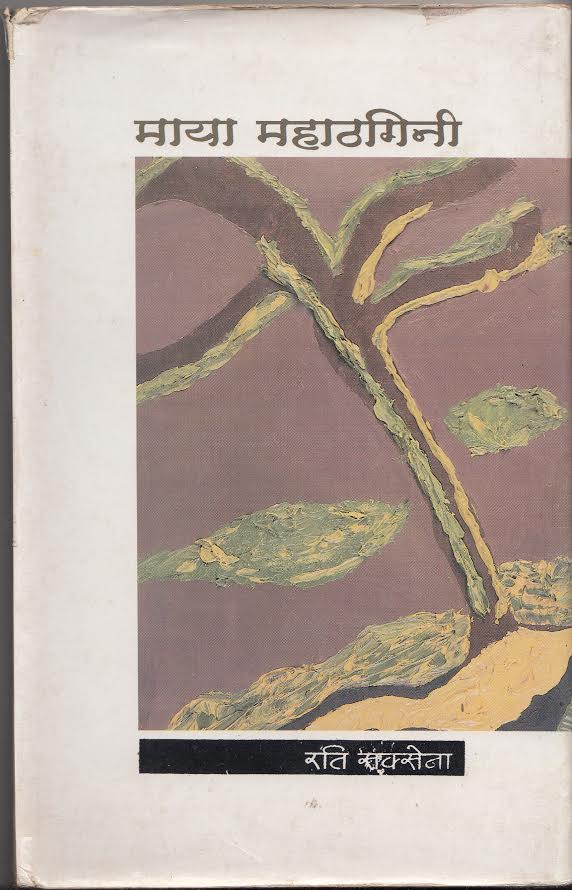
निकोला की माँ
उसकी दुनिया बस उतनी
जितनी उसकी रोटी
उसका आकाश
खिड़की के पार उड़ता
काला परिन्दा
उसके रस
अंगूरों से आरम्भ हो
अंगूरों पर खतम होते
पंजे पर खड़ी हो
वह घूमती है
चारो दिशाओं में
सीमाएँ बनती बिगड़ती
उसके सीने में
भाषाएँ चहचहातीं
दाने चुगती
उसकी हथेली पर
अपनी धुरी पर टिके टिके
देश बदलती है
निकोला की माँ
(स्कोप्ये के निकोला कवि की माँ के लिये जिनका घर अब तक तीन देशों की सीमा में आ चुका है।)
Nichola’s Mother
Her world is only as large as her bread,
her sky
the blackbird
flying across the window,
all juices for her
start and end with grapes.
She stands on her toes
and starts to twirl.
Borders draw and redraw themselves
across her chest, languages
peeping and pecking grains
from the palm of her hand.
She’s been so many countries
without ever moving
from her axis as Nichola’s mother.
*Nichola is a Macedonian poet and his mother’s home has been ruled by three different countries in her lifetime
————
शरणार्थी
वे कुछ इस तरह चले आये
इस जमीन पर,जैसे कि
जहाजीय पताका पर लिपटी समन्दरी हवा,
विषुवत रेखीय प्रदेश में उमस भरी भोर में ओस
या फिर
बरसाती साँझ में रौशनी की ओर उड़ान भरते पतंगे
वे कुछ इस तरह बस गये
इस जमीन पर, जैसे कि
दरवाजों की सुराखों में तत्तैयों के घरोन्दें
पोस्ट बाक्स में गलत पते वाली चिट्ठी
इनबाक्स में अनचाहे अनजाने मेल
वे कुछ इस तरह रम गये
इस जमीन पर, जैसे कि
रंगीन प्यालों पर तैरते बर्फ के टुकड़े
अधूरी बनी इमारत के खण्डहर से लिपटी पतंगे
वे हर रात लौटते हैं
दलदल के पार उनपगडन्डियों पर
जिनपर उनके पाँवों के निशां
सर्द हवा में रोंगटों से खड़े हैं
टूटी पतीलियों कें पैन्दों मे भूख
जमकर कालिख बन गई है
हर कदम लौटते हुए
हरकदम आगे बढ़ते हुए
वे बिला जातेहैं इसी जमीन की हवा में
जो इनकी कभी नहींर ही
Refugee
They came to this land
as if by sea, the way wind
clings to spar, like the dew
on a humid morning
somewhere near the equator
or the way moths on a rainy evening
fly towards the light,
they took shelter in this place
the way wasps nest in the holes
of old wooden doors, or a letter
with a wrong address in a post office box
or unwanted email in an inbox,
they settled in this land
the way ice floats in a glass of juice,
like kites holding tight to the ruins
of buildings,
they return each night
by marshy paths where
their footprints stipple the land
like goose bumps, their hunger
stubborn as the blackened ash
stuck to the bottom of a pan,
one step backward
to lurch one forward
they disappear into the land
that does not belong to them.
—————
परदेश की जमीन के ख्वाब सा
वह उसे मुस्कुराते देखना चाहता था
परदेश की जमीन के ख्वाब सा
वह उसे नाचते हुए देखना चाहता था
वायलिन के तारों पर सुरों सा
वह देखना चाहता था उसकी गोदी में
सोते बच्चे के होंठ पर दूध की लकीर को
वह उसे सहेजता रहा
अपनी डिब्बे रखी बासी रोटी सा
वह उसे बचाता रहा
अलबेनिया और सरबेरिया के बीच
तारों से खिंचे बाड़ों में
कलियों की तरह खिल आए काँटों से
वह उससे प्रेम करता रहा
अपनी देश की सरहद से कहीं ज्यादा
लेकिन वह उसे खो बैठा
हकीकत के कहीं ऊपर की सपनों की दुनिया में
बिल्कुल अपने दुश्मन देश के
युवा की तरह।
Dreaming in another Land
He wanted her to smile
the dream of living in another land.
He wanted her to dance
like a melody on a violin’s strings.
He wanted to see in her lap
the milk-stained mouth of a sleeping child.
He looked after her
like day-old bread to be relished.
He was trying to save her
from the barbed wire
around Albania or Siberia
that bloomed like flowers from stone.
He loved her more than his country
but lost her far away like his dream,
the same as a young man
of his enemy country.
Translated in to English by Seth Michelson



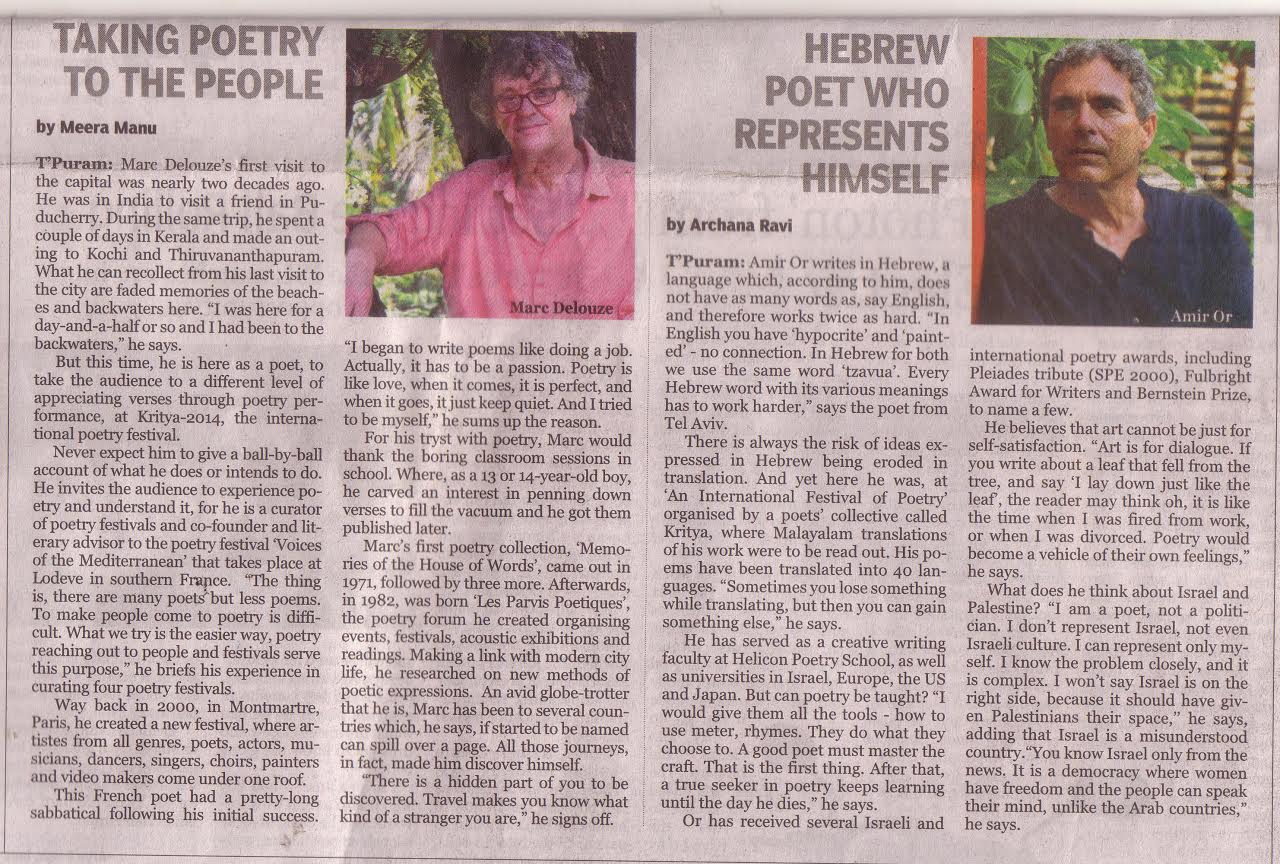
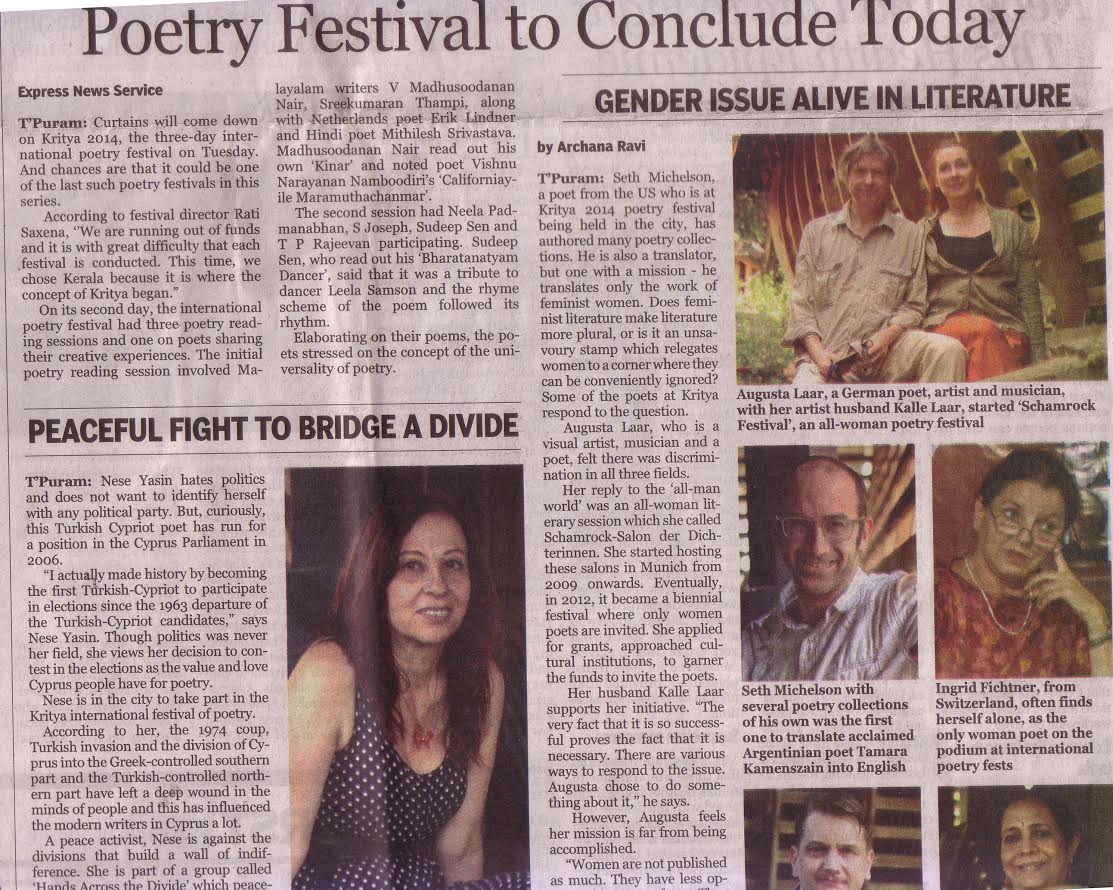

The photo are taken by -Martin Richartz. (please mention the photographers Name
http://www.krityapoetryfestival.com
http://fistfulwords.blogspot.in



